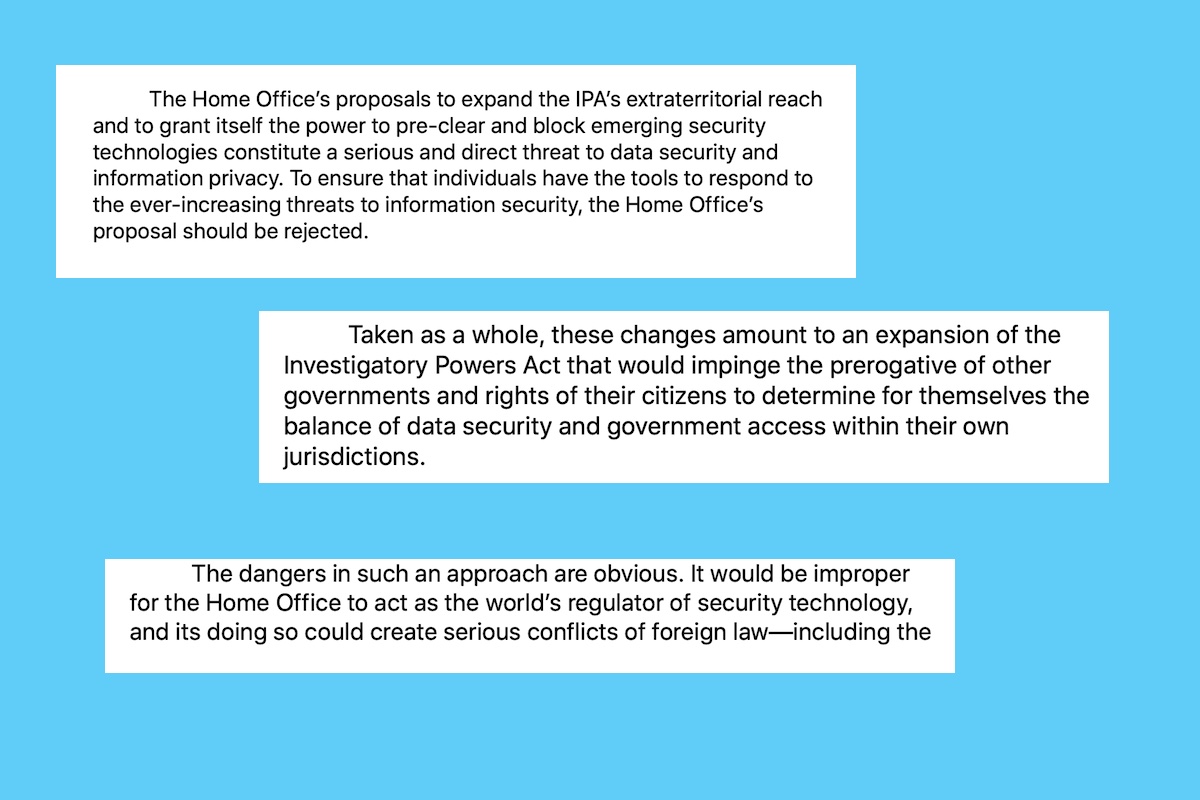Here is Apple’s 9-page response to the UK snooper’s charter

Apple is threatening to turn off access to iMessages and FaceTime in the UK in opposition to a foolish and ill-thought through UK government bill already being described as a “snooper’s charter”.
Opposing the snooper’s charter
The threat was presented to the UK within Apple’s response to the government in relation to these proposals. You can read the nine-page criticism here (PDF).
Apple is opposing the UK Home Office’s proposed changes to the Investigatory Powers Act. (Last updated 2016, and built on an act introduced by the Blair government).
The act forces tech companies to change or disable key security features on apps without any legitimate way to appeal for review or oversight. The company has rightfully called these proposals a “serious and direct threat to data security and information privacy.
“To ensure that individuals have the tools to respond to the ever-increasing threats to information security, the Home Office’s proposal should be rejected.
Apple also had significant criticisms of elements of the original 2016 Act.
There’s no such thing as a secret back door
Like every sane tech company, Apple knows that without encryption the security of both digital citizens and digitized enterprises is threatened. You cannot have a backdoor that only so-called “good guys” can use, because the bad guys will eventually find that weakness too.
Enforcing weakness by mandate simply undermines global data security.
This is why Apple is standing up against yet more ill-thought through UK government legislation that doesn’t just threaten the digital liberty of UK users, but also undermines significant elements of the international digital economy.
“The new powers the Home Office seeks—expanded authority to regulate foreign companies and the ability to pre-screen and block innovative security technologies—could dramatically disrupt the global market for security technologies, putting users in the UK and around the world at greater risk,” the Apple comments explain.
The company just does not think it is appropriate that it should inform the UK Home Office of changes to product security features before they are introduced.
It also points out that the proposals conflict seriously with current laws elsewhere, including the GDPR and the US CLOUD Act.
Effectively a global gagging order
It gets worse.
“Expanding the extraterritoriality of the IPA’s notice regime is even more troubling in light of the IPA’s requirement that the recipient of a notice not disclose the notice’s existence. By requiring non-UK technology companies to maintain the ability to produce unencrypted data for all of their users worldwide—without notifying their users of that ability—the IPA would include a worldwide gag order.
“That is deeply problematic, especially considering that the legal systems of most nations treat free speech as a fundamental individual right.”
Apple has nine more pages of accurate criticism of the proposals, which you should read and can do so here.
The company also disagrees that tech firms should be forced to disable or block any proposed security features on government dictat.
Apple has already joined WhatsApp and Signal in protest against other ill-thought through demands within the UK government’s equally awful Online Safety Bill for surveillance to become a mandatory part of daily life.
“End-to-end encryption is a critical capability that protects the privacy of journalists, human rights activists, and diplomats. It also helps everyday citizens defend themselves from surveillance, identity theft, fraud, and data breaches. The Online Safety Bill poses a serious threat to this protection, and could put UK citizens at greater risk,” the company said in opposition at that time.
“Apple urges the government to amend the bill to protect strong end-to-end encryption for the benefit of all.”
Please follow me on Mastodon, or join me in the AppleHolic’s bar & grill and Apple Discussions groups on MeWe.




